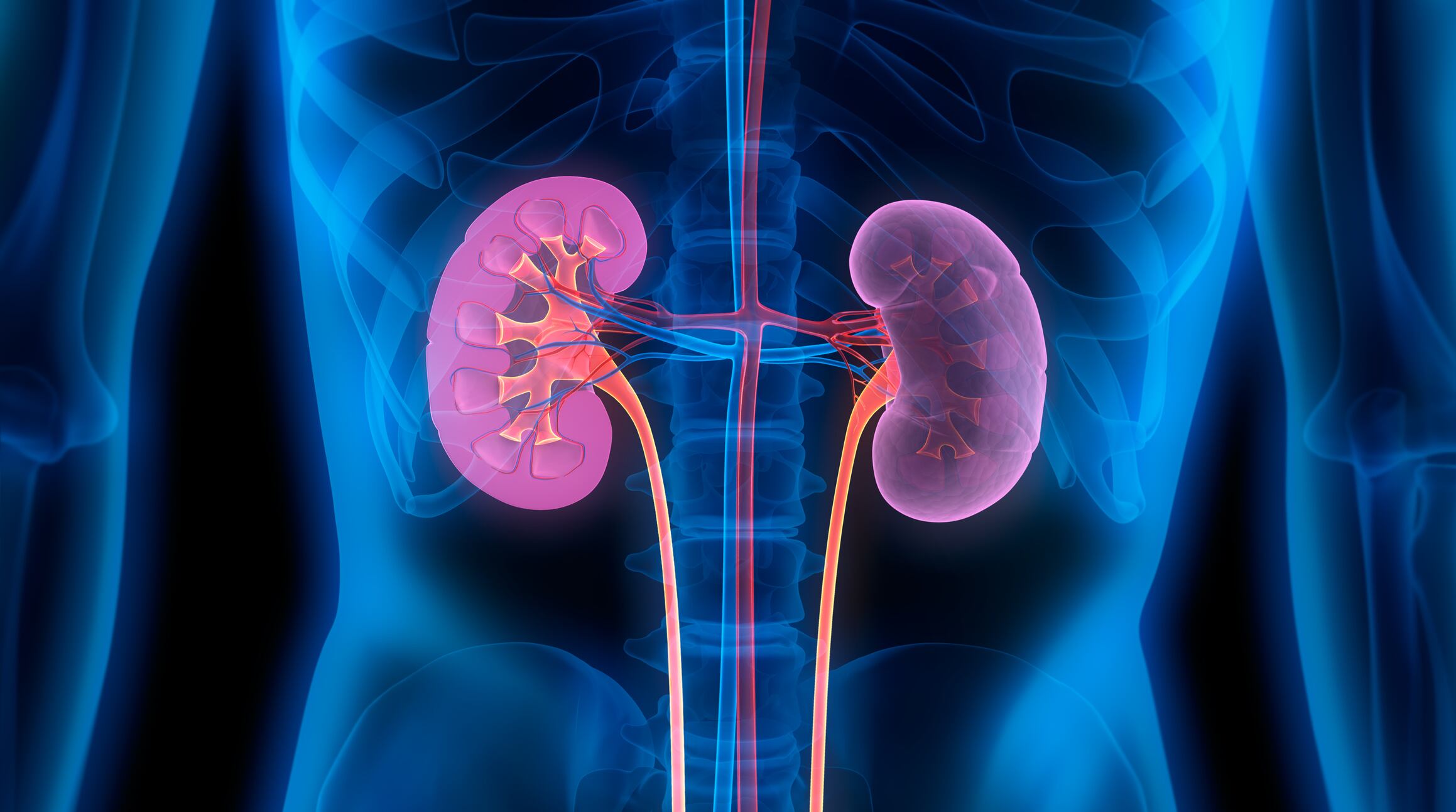People who are unaware they have mild chronic kidney disease and who are following a high-protein diet risk ‘taking the fast lane to irreversible kidney failure’.
Three new studies published in the journal Nephrology Dialysis Transplantation, link high-protein diets with kidney damage.
Many previous studies have shown that a high-protein diet may harm kidney function. Indeed, many people with a known early-stage chronic kidney disease are recommended a low-protein diet by medical professionals.
But researchers from the European Renal Association-European Dialysis and Transplant Association point out that many people who are unaware they have a mild chronic kidney disease could be following the trend of eating a protein-rich diet because they believe it is healthy. "These people do not know that they are taking the fast lane to irreversible kidney failure," said the ERA-EDTA’s Professor Denis Fouque. "It is essential that people know there is another side to high-protein diets, and that incipient kidney disease should always be excluded before one changes one eating habits and adopts a high-protein diet."
To recommend a high-protein diet to an overweight diabetes patient may cause loss of weight, but also a severe loss of kidney function
Meanwhile, the promise of saving calories and losing weight is why high-protein diets are very often recommended to people who suffer from diabetes or who are obese. But 30% of patients with diabetes suffer from an underlying chronic kidney disease, claimed the scientists, while the number of people affected by type-2 diabetes is rising.
The crux of the matter is that these groups of people are especially vulnerable to the kidney-harming effects of a high protein intake, the researchers noted.
"A high-protein diet induces glomerular hyperfiltration, which, according to our current state of knowledge, may boost a pre-existing low-grade chronic kidney disease, which, by the way, is often prevalent in people with diabetes. It might even increase the risk of de novo kidney diseases", explained Fouque.
"To put it in a nutshell: To recommend a high-protein diet to an overweight diabetes patient may indeed result in loss of weight, but also in a severe loss of kidney function. We want one, but we also get the other."
The experts added it is high time that the diabetes population and the general public are warned. "By advising people - especially those with a high risk for chronic kidney disease, namely patients with diabetes, obese people, people with a solitary kidney and probably even elderly people - to eat a protein-rich diet, we are ringing the death bell for their kidney health and bringing them a big step closer to needing renal replacement therapy,” said Fouque.
‘The higher the intake, the faster the decline’
The studies published in Nephrology Dialysis Transplantation included an analysis of 4,837 Dutch patients aged 60–80 years with a history of heart attack. This showed a strictly linear association between daily protein intake and decline in kidney function. “The higher the intake, the faster the decline,” it concluded.
The result of an epidemiological study conducted in South Korea pointed to the same direction: persons with the highest protein intake had a 1.3 higher risk of faster GFR (or glomerular filtration rate, a test to measure your level of kidney function and determine your stage of kidney disease loss).
The analysis added it was unclear whether it makes any difference if the proteins are animal- or plant-based. “The recommendation is to abstain in general from a high protein intake,” it said.
Sources
High-protein diet is bad for kidney health: unleashing the taboo
Nephrology Dialysis Transplantation
Authors: Kamyar Kalantar-Zadeh, Holly M Kramer, Denis Fouque.
DOI: https://doi.org/10.1093/ndt/gfz216
Dietary protein intake and kidney function decline after myocardial infarction: the Alpha Omega Cohort
Nephrology Dialysis Transplantation
Authors: Esmeijer K, Geleijnse JM, de Fijter JW et al
DOI: https://doi.org/10.1093/ndt/gfz015
High-protein diet with renal hyperfiltration is associated with rapid decline rate of renal function: community based prospective cohort study
Nephrology Dialysis Transplantation
Authors: Jhee J-H, Kee Y-K, Park S et al





